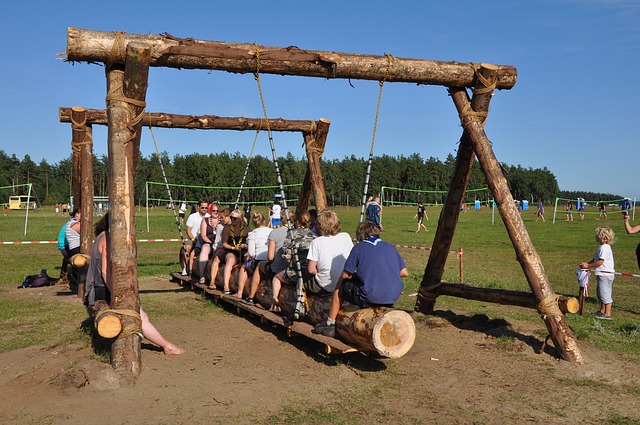We’ve hit midsummer and kids across the country have had to deal with the disappointment of canceled summer camps this year. Now, many school districts are making parents choose between virtual learning this fall or sending their children to school during a pandemic. Some school districts are going entirely virtual. Having to face more upheaval in a year of unprecedented changes has brought up grief and anxiety for both kids and parents. Yet, despite this turmoil, there are some good things that have come from the pandemic.
The Good – Some Pandemic Silver Linings
One of the most significant changes are the family ties that formed or remodeled after our hectic lives were halted. Parents and kids are spending more time together as a family because extracurricular activities aren’t taking precedence. Plus parents who are working from home have extra time to interact with their children since they don’t have to commute.
Just being able to play like children has been good for kids. Often their lives are structured from the time they awaken until they fall into bed at night, so being able to simply play has been good for developing their imagination, exploring their world, and just being a kid.
The Bad – Pandemic Grief And Anxiety
For many kids, having no summer camp has been very distressing. It’s something they look forward to –often, they have friends there that they don’t see for the rest of the year because they live in a different state. For teens who were anticipating becoming camp counselors or who were attending their final year of camp, not being able to go is beyond frustrating.
Furthermore, children haven’t seen most of their school friends in person for several months and are now being told they likely won’t see them this fall, either. In addition, when it comes to learning, many kids do better in a classroom environment where they can see examples and question the teacher directly, so it’s upsetting for them to know they will be stuck at home and struggling with virtual learning.
Parents faced similar emotions at the canceling of camp and the prospect of having their children home for at least some of the fall school semester. Along with having to figure out how to keep kids meaningfully entertained, they’re grieving the loss of their own couple’s trips and trying to navigate another semester of being involuntary teachers.
PTSD And Anxiety In Children During COVID-19
Just as with adults, the stress of life during coronavirus has dramatically altered children’s day-to-day world.
Natural disasters like a pandemic can have long term effects on kid’s emotional and mental health. In studies of children’s mental health after Hurricane Katrina, researcher Carolyn Kousky, reported that, “researchers found high rates of PTSD symptoms as well as other negative mental health impacts and behaviors, such as aggression in adolescent.” Furthermore, a 2013 study found that kids who had gone through a quarantine for disease control scored four times higher on a post-traumatic stress test than children who hadn’t been quarantined.
You can see why it is vital for parents and adult family members to help kids make sense of the pandemic, especially in an accurate way that minimizes their fears.
- Be available to talk if they have questions (and be sure they know they can come to you).
- Speak to your children in a calm voice. Try to be reassuring about their fears. Remember that kids can and do pick up on cues in your tone and body language.
- Validate their feelings of loss and try to show empathy.
- Try to reduce or limit news broadcasts and screen time so your child (or you!) doesn’t become overwhelmed by news coverage of the pandemic.
- Try not to condemn or ridicule someone you know to your kids if they have been sick with the virus.
- Remind kids that rumors run wild on social media. Many stories are inaccurate.
To avoid any long term consequences, it’s essential that parents take steps to address and reduce any COVID-19 anxiety their children may have. KidsHealth.org provides great resources for keeping kids busy during the pandemic and has some helpful ideas for addressing the topic with your child.
Helping Children With Anxiety
For more information about how our mental health professionals and child psychologists can help your child deal with anxiety about the pandemic, contact the Children’s Center for Psychiatry Psychology and Related Services in Delray Beach, Florida or call us today at (561) 223-6568.

